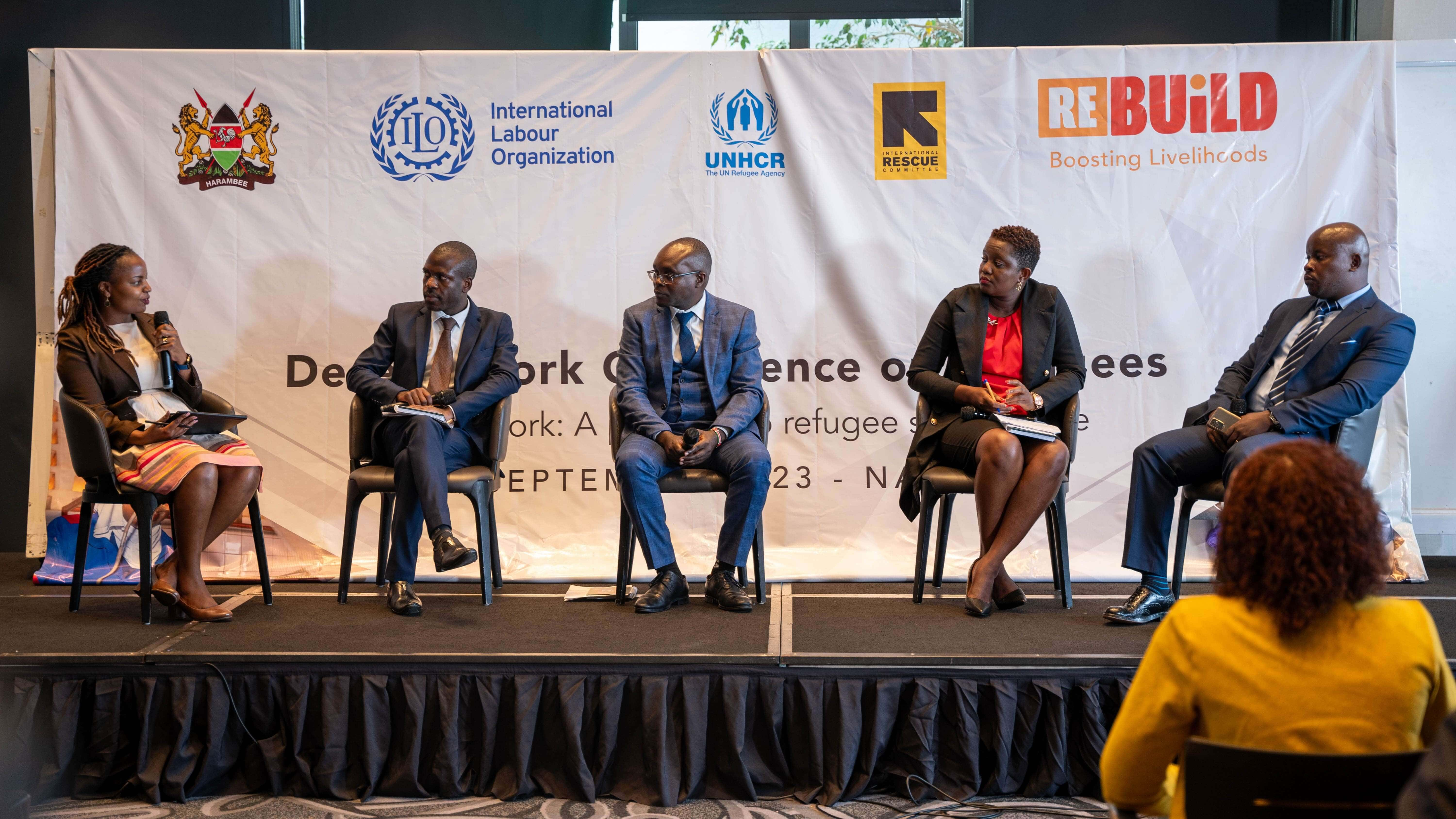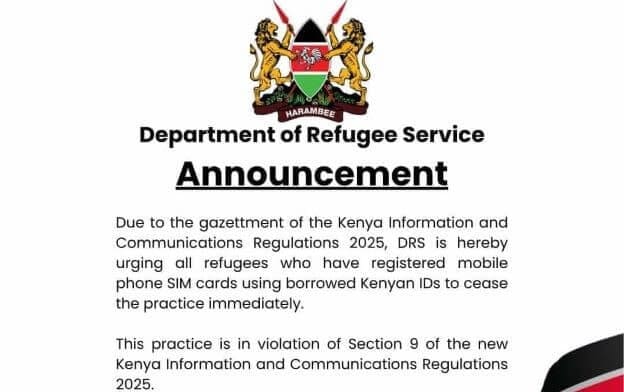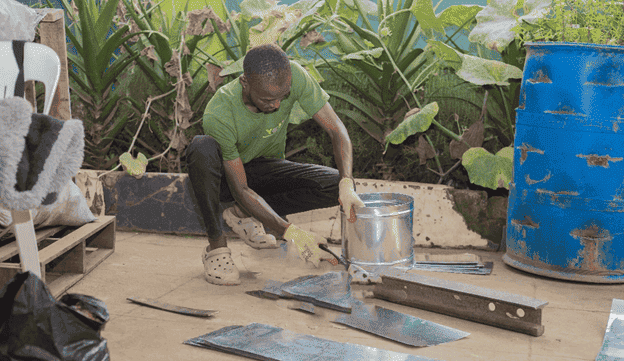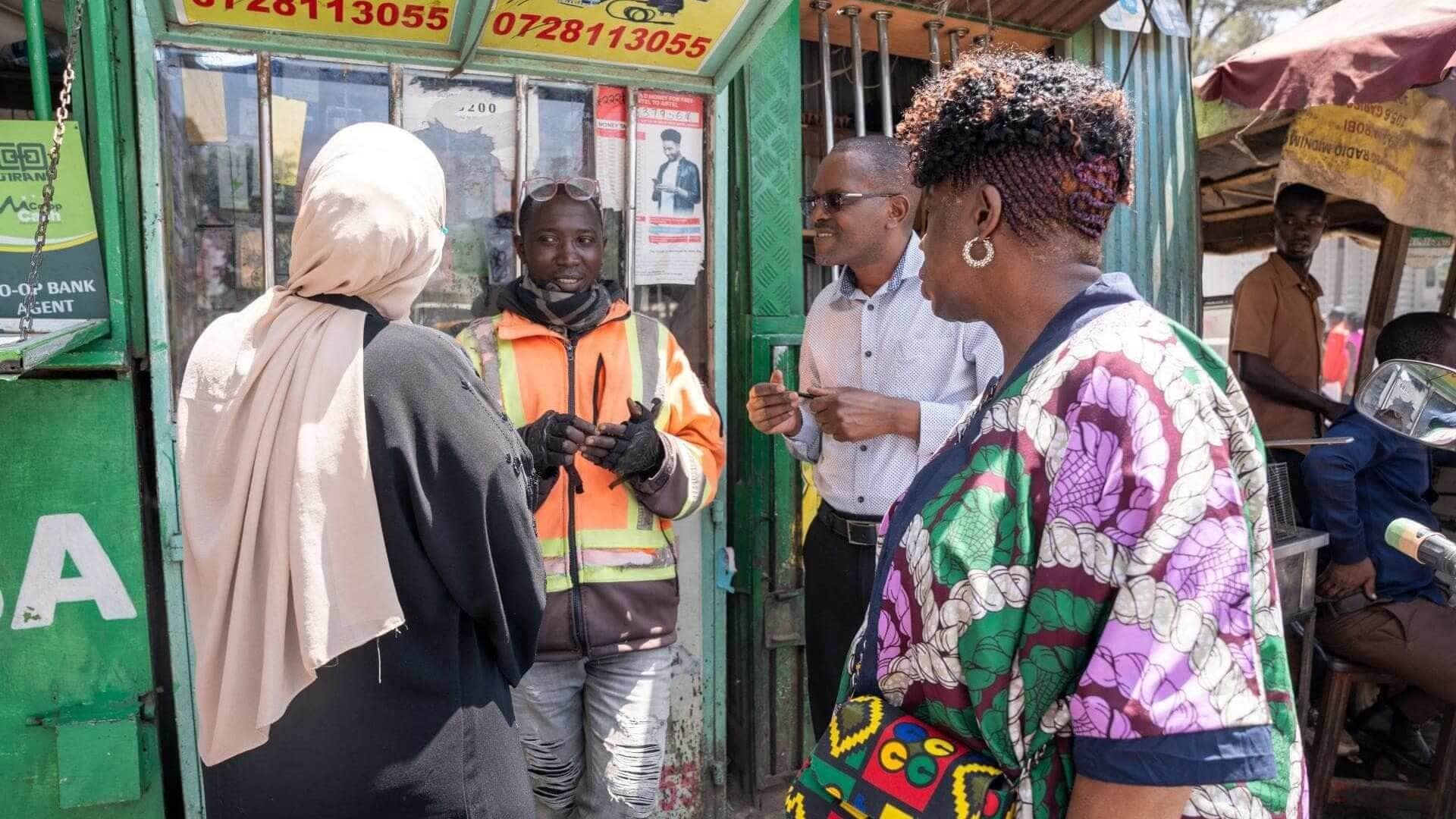New policy brief calls for more action to support refugees access to decent work in Nairobi and Kampala
New policy brief calls for more action to support refugees access to decent work in Nairobi and Kampala
New policy brief calls for more action to support refugees access to decent work in Nairobi and Kampala

Nairobi/Kampala – A new policy brief by Re:BUiLD, an urban refugee livelihood program led by the International Rescue Committee (IRC) and local partners, and funded by the IKEA foundation, highlights the barriers refugees face in accessing decent jobs in Nairobi and Kampala and highlights concrete steps that governments, NGOs and the private sector should take to improve access to decent work.
According to UNHCR, 175,000 refugees live in Nairobi and Kampala, the majority of who rely on themselves for income to sustain their families. The new policy brief highlights a common misconception that these urban refugees are fully supported by international aid and therefore are a source of cheap labor in the cities. This has limited their access to decent employment opportunities, fair income and created discriminatory practices at the workplace. Additionally, urban refugees grapple with several other challenges like difficulties in getting their skills and qualifications recognized in host countries, delays in getting documentation, including work permits, language barriers, lack of training opportunities, as well as lack of social networks to assist them in finding employment.
‘’Refugees living in cities, unlike those based in settlements, are expected to be self-reliant. With these challenges, it is crucial to promote opportunities for meaningful and dignified employment to empower them, lift them out of poverty, and help them become income generators and contributors to economies recovering from the impacts of COVID-19 and the impact of the current global economic crisis,’’ said Priscilla Dembetembe, Re:BUiLD Program Director, International Rescue Committee.
In response to these challenges, the Re:BUiLD program outlines a set of concrete recommendations to a number of stakeholders that can influence decent work opportunities for refugees in Kampala and Nairobi, including the governments of Kenya and Uganda, NGOs and other refugee-serving agencies, private sector partners, and international donors. Both the Kenya and Uganda Governments and city authorities must better support urban refugees to access employment. This includes streamlining and expediting processes to provide refugee IDs and work permits and implementing existing policies that guarantee equal rights and protections for refugees in the workplace.
The IRC calls on NGOs to increase awareness of refugee rights in accessing decent employment opportunities in Kampala and Nairobi, and encourages the private sector to offer equitable, safe, and decent work opportunities for refugees. The IRC further calls on the private sector to be more flexible with refugee applicants who are looking for job opportunities.
The new policy brief outlines next steps for improving refugee rights and work opportunities. All stakeholders must to come together and cultivate an environment where refugees can access decent work, contributing to the economic productivity and growth of host economies.
For Media Inquiries:
Sally Anyanga: Sally.Anyanga@rescue.org
About the Re:BUiLD program:
Funded by the IKEA Foundation, the International Rescue Committee’s Re:BUiLD Program is enabling urban refugees in East Africa to build sustainable livelihoods in the cities that host them, while inspiring evidence-based changes to systems for supporting refugees around the world. Various service options are offered under Re:BUiLD to help 20,000 refugees and other vulnerable residents in Kampala and Nairobi to find jobs, start or grow their own businesses, manage financial risk and participate in thriving economies and communities.
About the IRC:
The International Rescue Committee responds to the world’s worst humanitarian crises, helping to restore health, safety, education, economic wellbeing, and power to people devastated by conflict and disaster. Founded in 1933 at the call of Albert Einstein, the IRC works in more than 40 countries and in 28 U.S. cities helping people to survive, reclaim control of their future, and strengthen their communities. Learn more at www.rescue.org and follow the IRC on Instagram, Twitter, TikTok and Facebook.


